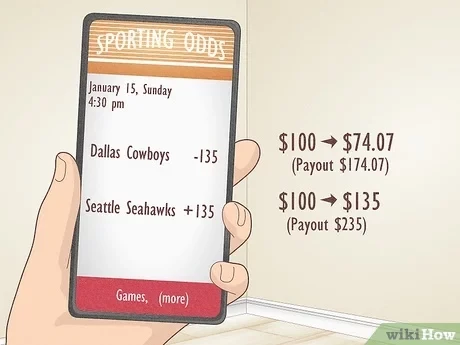When it comes to sports betting, understanding how to read and use odds effectively is crucial for success. Whether you are a seasoned bettor or just getting started, having a solid grasp of odds can make a significant difference in your overall betting strategy. In this article, we will break down the basics of sports betting odds and provide tips on how to use them to your advantage.
What are Sports Betting Odds?
Sports betting odds represent the probability of a particular outcome in a sporting event. They are typically presented in three different formats: decimal, fractional, and American (moneyline) odds.
Decimal Odds: Decimal odds represent the total payout, including the initial stake, for every unit bet. For example, odds of 2.00 mean that you will double your money if your bet is successful.
Fractional Odds: Fractional odds represent the profit that will be made on a bet compared to the stake. For example, odds of 5/1 mean that you will make a profit of $5 for every $1 bet.
American (Moneyline) Odds: American odds are presented with a plus or minus sign and represent how much money you need to bet to win $100 (plus) or how much you would win on a $100 bet (minus).
How to Use Sports Betting Odds Effectively
1. Understand Probability
Before placing a bet, it is essential to understand the implied probability of the odds. This can help you assess the risk and potential reward of a bet. The formula to convert decimal odds to implied probability is: Implied Probability = 1 / Decimal Odds. For example, decimal odds of 2.00 imply a 50% chance of winning.
2. Compare Odds
Shopping around for the best odds is crucial for maximizing your potential winnings. Different sportsbooks may offer different odds on the same event, so it is beneficial to compare multiple sources before placing a bet. This can make a significant difference in the long run.
3. Consider the Context
When analyzing odds, it is essential to consider various factors that may impact the outcome of a sporting event. This includes team form, injuries, weather conditions, and historical data. Understanding the context of the odds can help you make more informed betting decisions.
4. Manage Your Bankroll
Effective bankroll management is key to long-term success in sports betting. It is important to set a budget for your bets and avoid chasing losses. Sticking to a disciplined betting strategy can help you avoid betting more than you can afford to lose.
5. Use Betting Tools
There are a variety of betting tools and resources available online to help you make informed betting decisions. These tools can include odds comparison websites, betting calculators, and statistical analysis tools. Utilizing these resources can give you an edge in the competitive world of sports betting.
Conclusion
Reading and using sports betting odds effectively is a skill that can be developed over time. By understanding the basics of odds, comparing different sources, considering the context, managing your bankroll, and utilizing betting tools, you can improve your chances of success in the world of sports betting. Remember to bet responsibly and only wager what you can afford to lose. Good luck!
